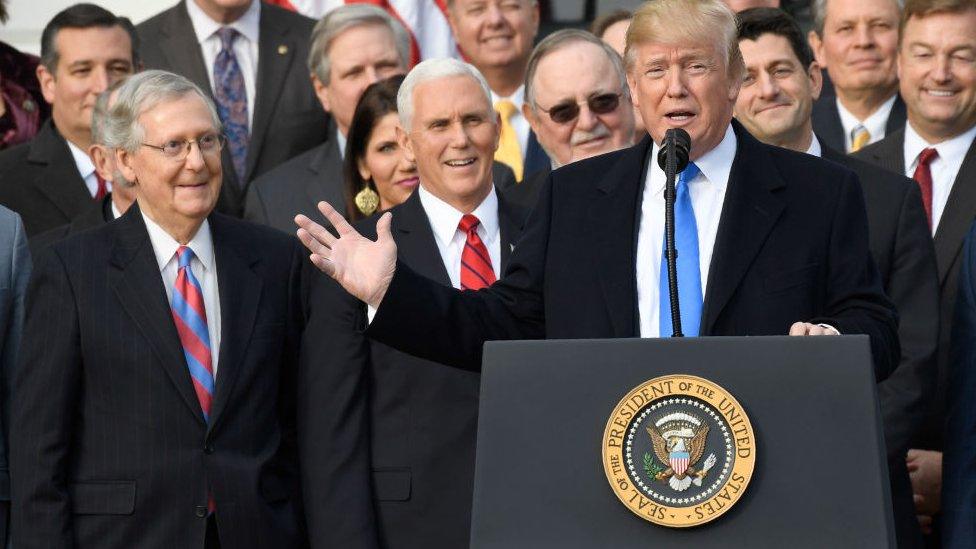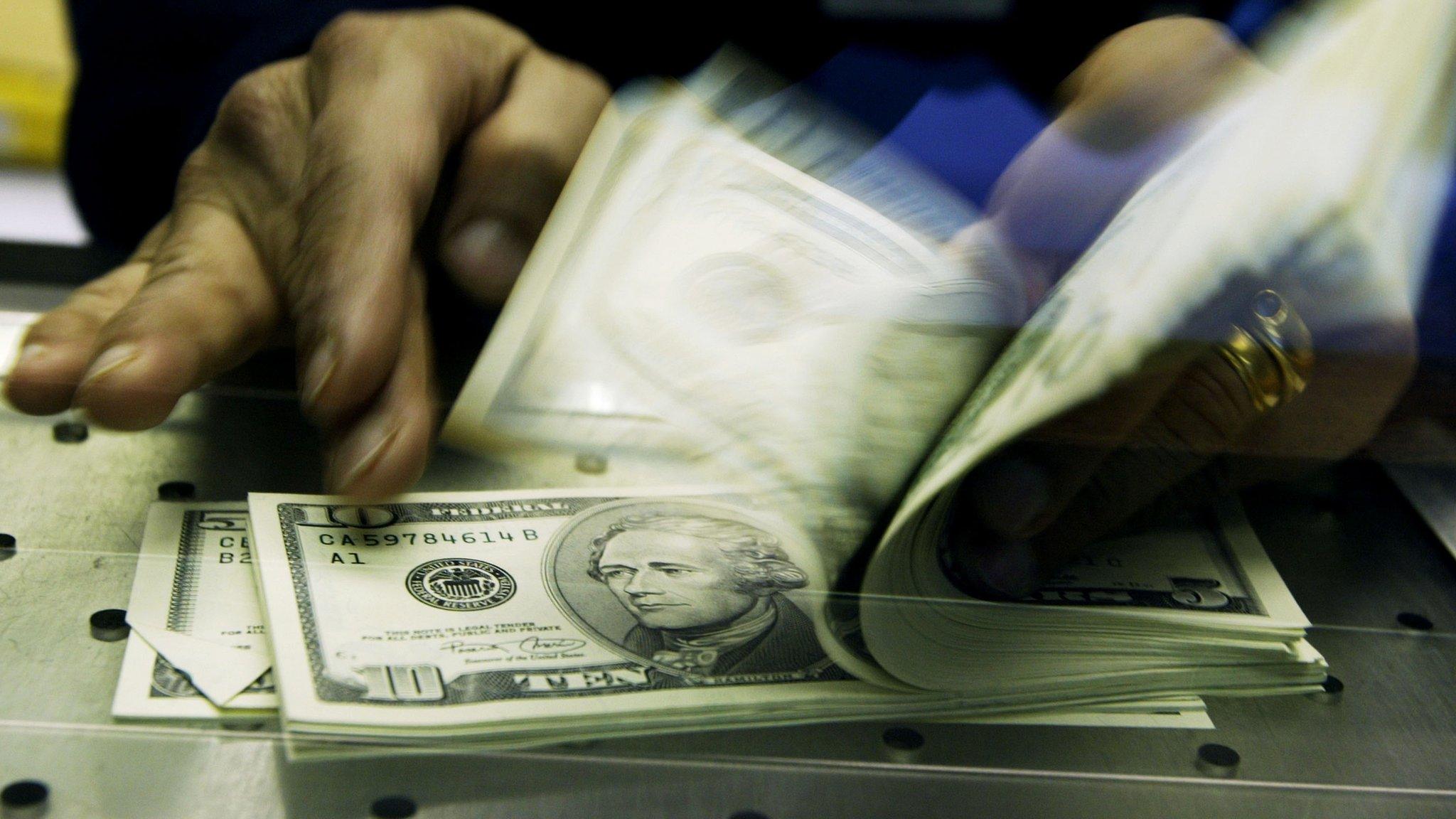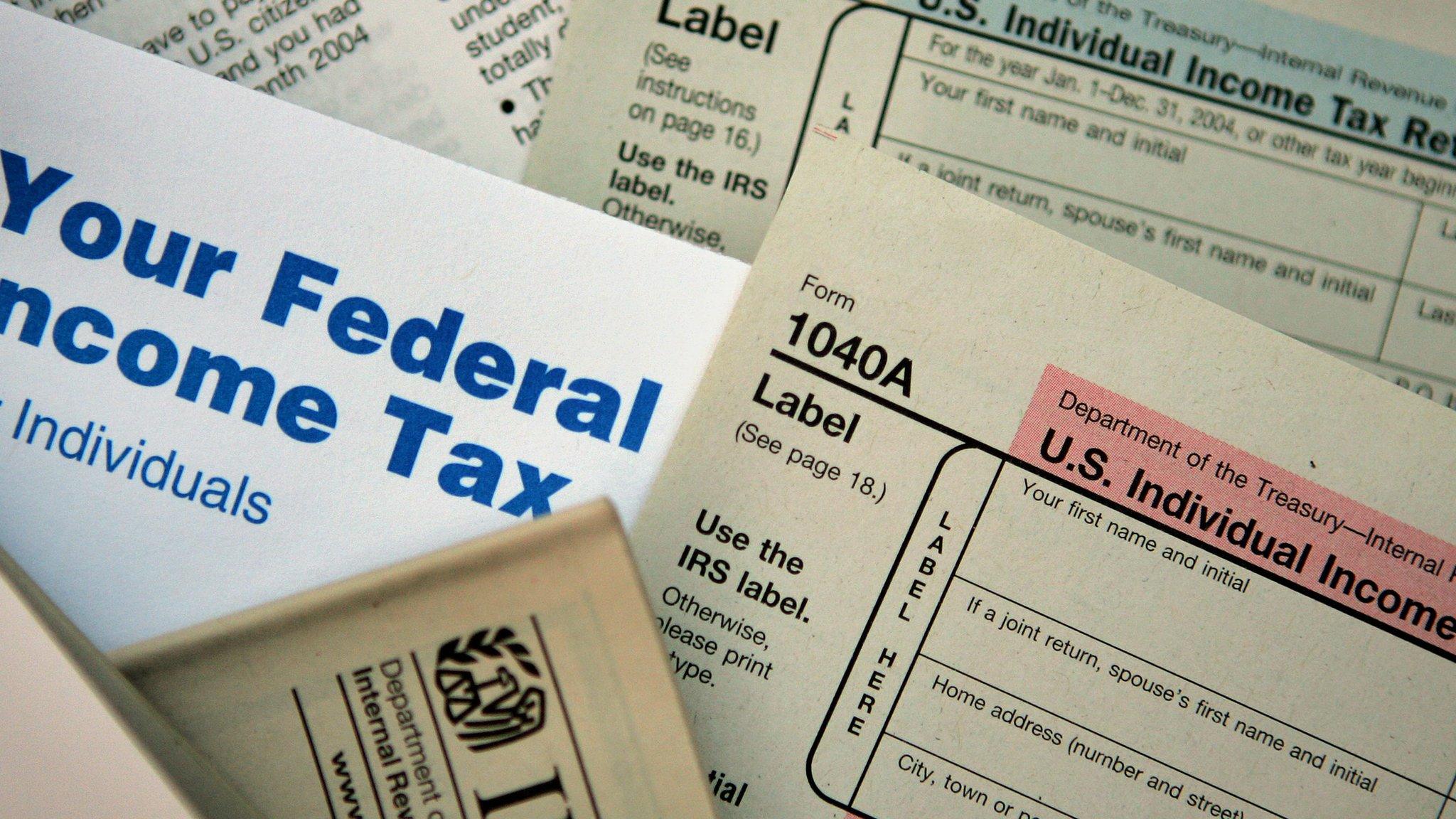US annual budget deficit forecast to hit $1 trillion
- Published

Donald Trump and his fellow Republicans celebrate passing $1.5 trillion in tax cuts
The US is heading for an annual budget deficit of more than $1 trillion (£707bn) by 2020 following tax cuts and higher public spending, according to the Congressional Budget Office.
It said that while the measures will temporarily boost the US economy, they will exacerbate its long-term debt.
The agency said US debt could rise to a level comparable to World War II and the financial crisis.
It warned that it would have "serious negative consequences" for the US.
The CBO's report has been revised to incorporate the effects of a new $1.3 trillion government spending bill and the $1.5 trillion in Republican-led tax cuts approved last year.
It lifted its economic growth forecast for this year and next to 3.3% and 2.4% respectively.
However, the non-partisan CBO said the deficit - the difference between what the government spends and what it receives through tax receipts - is expected to rise to $804bn in 2018 from $665bn in the previous year.
The budget deficit is then expected to grow to $1 trillion by 2020.
Rising debt
The agency said it now expects America's cumulative deficit over the next decade to grow to $11.7 trillion compared to a previous forecast of $10.1 trillion.
It added that debt would hit $28 trillion, or about 96% of GDP, by 2028.
The figure would be even larger if the tax cuts for individuals and families do not expire as scheduled.
The CBO said that "such high and rising debt would have serious negative consequences for the budget and the nation," which would include limiting the government's flexibility to introduce new policies and making it vulnerable to fiscal shock.
The report is expected to fuel concerns that China could use its position as America's largest foreign creditor to its advantage during the current trade dispute.
Democrats seized on the report to criticise Republicans, who have previously championed fiscal responsibility.
Senator Chuck Schumer of New York said the report "exposes the scam behind the rosy rhetoric from Republicans that their tax bill would pay for itself" and warned that Republicans will now use the rising debt to call for cuts to welfare programmes such as Social Security.
- Published1 December 2017

- Published19 December 2017
